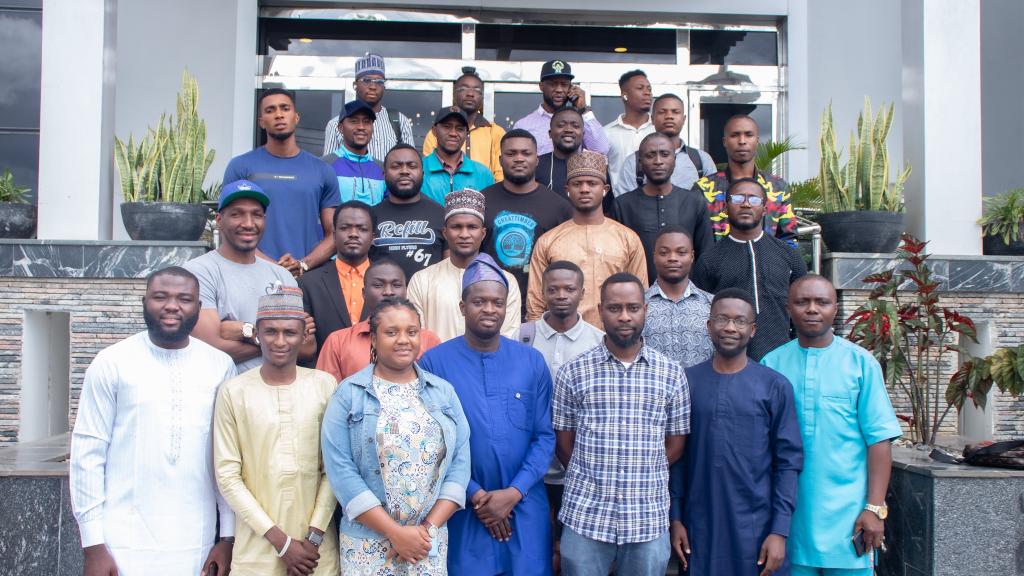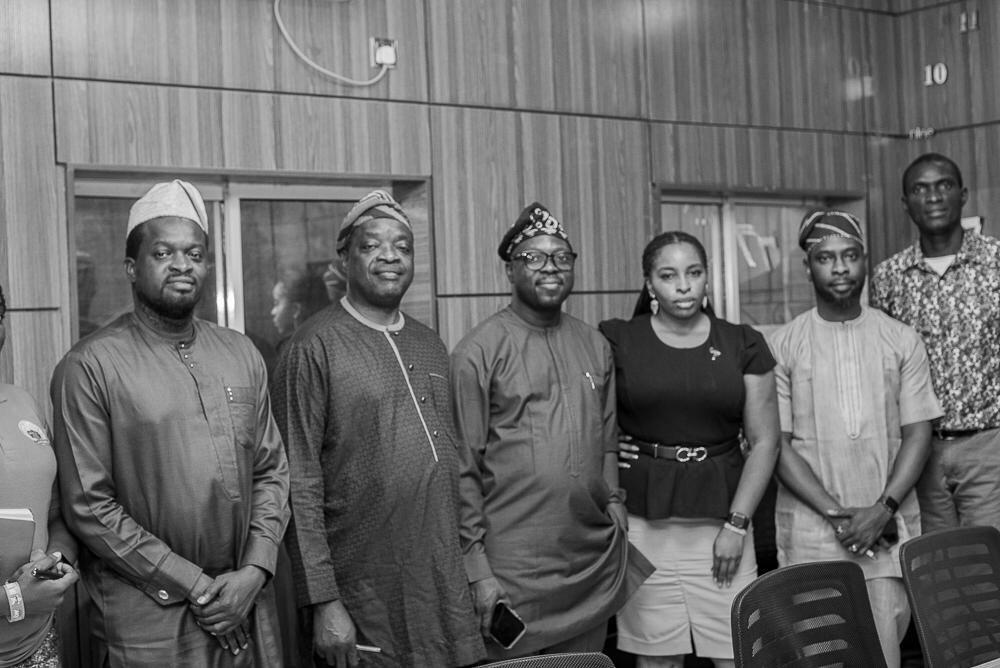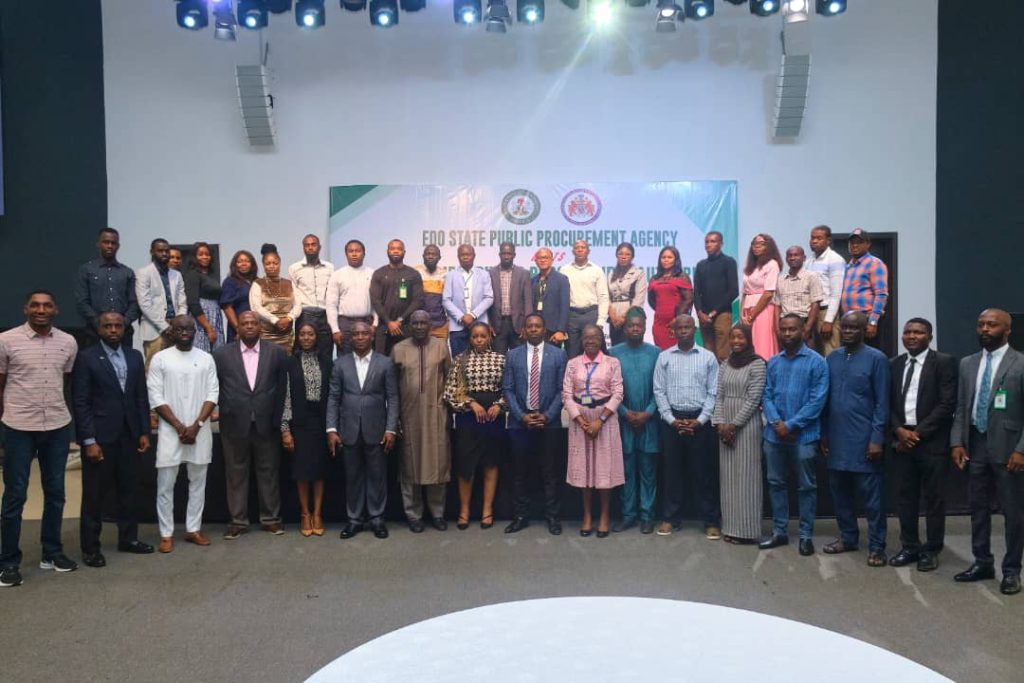The Kaduna State Ministry of Finance has achieved over one thousand per cent (1000%) revenue performance in its Internally Generated Revenue (IGR) with over fifty billion naira (N50bn) achieved. Over the years, the Ministry has consistently exceeded its IGR target.
The Ministry of Finance, Kaduna State, released a fact sheet chronicling the significant milestones of Governor Uba Sani’s SUSTAIN AGENDA.
The sheet released by the Hon. Commissioner of the Ministry, Hon
Shizzer Bada highlighted key broad areas ranging from reforms of fiscal and tax policies, which are aimed at improved fiscal governance, to revenue transformation and economic growth.
The Ministry is saddled with the responsibility of revitalising Kaduna State’s economy, prioritising reforms as the State grapples with global economic uncertainties and challenges, having laid the framework to fully realise the transformative vision and deliver on the campaign promises of the Governor.
The administration designed, and implemented innovative, home-grown technology-driven solutions that increased the resources available to the government, increased the revenue, and thereby gave the government the wherewithal to spend on infrastructure, and social services.
In the statement titled, ‘Buhari administration at 7: Service to the people, nothing else,’ the Presidency said Buhari had kept to his campaign promise “to serve Nigeria faithfully in all spheres of national life.”
“He concluded the first four years, and Nigerians, in a show of confidence, massively renewed his term for another four years, which lapses this time next year,” the statement said.
The Presidency said Buhari had made “strides in infrastructural development; roads, bridges, rail, air and seaports, housing, and many others.”
Mandate: Policy formulation and coordination of public finance matters in the state.
Public finance management, custody and maintenance of financial and accounting records of all government accounts in the State.
Disbursement and monitoring of funds from all accounts of Ministries, Departments and Agencies (MDAs) and public funds of the State.
Debt management, servicing and repayment in line with the Debt Management Law and guidelines.
Enhance value for money in the state finances through efficiency and investment measures. Formulate and enforce policies for centralized.
Procurement of vehicles, insurance and office equipment on behalf of all MDAS. Supervision/Oversight of any executive agency or parastatal within the mandate of the Ministry etc.
Core values: Professionalism,Team Work and Integrity and Transparency.
Achievements under Governor Uba Sani: The administration of His Excellency, Distinguished Senator Uba Sani has achieved significant financial milestones over the past year. The Honourable Commissioner of Finance, Hon. Shizzer Nasara Bada pointed out that these achievements align with the SUSTAIN Agenda, focusing on various aspects of economic growth, prudent financial management, and infrastructural development. The key achievements under His Excellency, Distinguished Senator Uba Sani are as follows:
Accountability and Transparency Rating:
The State came second (2nd) out of thirty-six (36) States in the ICAN Accountability and Transparency Index (AI) reflecting the administration’s commitment to transparency, accountability, and effective resource utilization.
Credit Rating: Kaduna State’s international credit rating improved to B with a positive outlook and maintained this rating in the latest Fitch rating. This has helped improve the creditworthiness of the State.
Financial Strategy: The Ministry of Finance developed a five (5) year finance strategy plan with a Growth and Financial Recovery Plan in place. This has shaped the direction of the Ministry in the management of scarce resources efficiently and effectively for sustainable growth and development.
IImproved Civil Servants’ Welfare and Other Benefits: The administration has ensured the timely payment of salaries for civil servants without any outstanding salaries. This consistency in salary payment is vital for economic stability and for boosting the morale and productivity of the workforce. It demonstrates the administration’s commitment to the welfare of the Civil Servant.
In partnership with the office of the Head of Service, a Revolving Loan Scheme has been introduced to enable civil servants to meet financial needs with seed funds of five hundred million naira (N500,000,000) at a single-digit rate of five per cent (5%). This initiative aims to promote access to funds for Civil Servants to meet financial obligations.
Clearing Pension Arrears: The Ministry of Finance continuously contributes to the Pension Sinking Fund (PSF) the sum of two hundred million (N200mn) for the clearance of pension arrears. As of date, a payment of approximately four billion, seven hundred million naira (N4.7bn) (two billion, six hundred million naira (N2.6bn) by the State and two billion, one hundred million naira (N2.1bn) by the Local Government) for the clearance of death and gratuity benefits. Consequently, the State has cleared its death and gratuity benefits arrears, leaving only the local government’s share as outstanding. The Contributory Pension Scheme (CPS) has been funded on a monthly basis with a total contribution of eight billion, four hundred and forty-four million, nine hundred ninety-four thousand, eight hundred and eighty-one naira, fifty-one kobo (N8,444,994,881.51) were made from May 2023 to June 2024. This includes five percent (5%) Retirement Benefit Bond Redemption Fund (RBBRF), Employer and Employee Contribution.
Cost-Cutting Measures:This administration has implemented measures to cut down on the cost of governance. This includes reducing the number of political appointees and focusing expenditure on critical areas such as education and health etc.
Political appointees’ salaries have been reduced by fifty percent (50%) which has created additional savings for the State.
Ministries, Departments, and Agencies (MDAs) overhead cost was slashed by fifty percent (50%), and all other overhead costs, leading to at least a fifty percent (50%) reduction in the cost of governance.
The Governor has forfeited his salary which has been added back to State funds.
No procurement of official vehicles has been made to date with the State utilising the old vehicles thereby saving billions for the State.
The State takes advantage of shared services to reduce cost e.g. certain consultancy services provided by in-house expertise, repairs and maintenance done centrally, cleaning services through direct labour etc.
Procurement of office supplies and consumables have been centralised to take advantage of economies of scale, improve efficiency, reduce wastage, and cost.The State is working assiduously to promote paperless operations which is currently in progress. This will reduce overhead costs significantly.
Security Enhancement: Over a hundred security vehicles have been purchased and distributed to security agencies to enhance security across the State. This measure is expected to improve security, facilitate the expansion of economic activities, and promote free movement.
Debt Restructuring and Renegotiation:
The State has successfully managed its debt without defaulting on any loan. It has also leveraged financial expertise to make repayment more manageable and sustainable.
Reduced domestic debts to about twenty-nine billion, three hundred and eighty billion naira (N29.38bn). This is a sixty-six percent (66%) reduction in domestic debt.
The State is implementing sound debt management strategies with yearly Debt Sustainability Analysis (DSA) and Debt Management Reports (DMR) prepared to better anticipate future risks and tailor financing terms accordingly.
Funding: The Ministry of Finance achieved over one thousand percent (1000%) revenue performance in its Internally Generated Revenue (IGR) with over fifty billion naira (N50bn) achieved. Over the years, the Ministry has consistently exceeded its IGR target.
The Ministry under the guidance of His Excellency, Sen. Uba Sani has raised other alternative and sustainable funding through Corporate Social Responsibility (CSR) and Grants e.g. Qatar Foundation and Kuwait Foundation support.
The Ministry of Finance has aggressively pursued funds through recovery services. Presently, billions of naira have been recovered for the State.
Focus on Financial and Economic; Inclusion:The administration has made significant strides in financial inclusion, covering over two (2) million poor and vulnerable persons. The next phase aims at “economic inclusion,” enabling people to meet their basic needs and lead productive lives with the freedom to make choices.
The State is in the process of establishing microfinance banking services to provide citizens with access to affordable and readily available credit at a favourable rate.
Tax Burden Reduction:The state successfully negotiated its tax burden, resulting in significant savings. These funds have been redirected to cover other priority expenditures, further enhancing the state’s financial health and service delivery.
Health and Education in Investment:Despite a reduction in school fees, the State has managed to meet the educational needs of students, demonstrating efficient financial management and prioritization of essential services.
The financial strategies of the Ministry have supported significant investments in the health sector. This includes a fifteen (15%) annual budgetary commitment and funding, distribution of medical equipment to various primary health care centres, and renovation of general hospitals across the State. The Kaduna State government has prioritized Primary Health Care and Basic Primary Education in its 2024 budget with a twenty-five point nineteen percent (25.19%) budgeted for education above the benchmark of fifteen to twenty percent (15% to 20%) and fifteen point sixty-three percent (15.63%) budgeted for health. The Ministry of Finance has supported the allocation of sustainable funds to these sectors and has effectively utilized these resources in the first half of the year. These investments aim to improve healthcare access, enhance education quality, and contribute to the overall development of the state.
The State has been contributing to the health insurance of its vulnerable persons through the Kaduna State Contributory Health Management Scheme (KADCHMA). Total contribution from May 2023 to June 2024 stands at one billion, two hundred and fourteen million, one hundred and twenty-nine thousand, fifty-six naira, ninety-three kobo (N1,214,129,056.93) has been made to provide quality affordable healthcare for vulnerable persons.
The State contributes forty per cent (40%) towards the payment of healthcare personnel in the Local Government Areas (LGAs). Total contribution from May 2023 to June 2024 stands at two billion, seven hundred and fifty-six million, four hundred and eighty-one thousand, one hundred and two naira, thirty-five kobo (N2,756,481,102.35).
Improved Cash Management and Liquidity Planning: Maintaining a centralized Treasury Single Account (TSA) system to consolidate government cash balances, enhance liquidity management, and transparency.
Developing cash flow forecasting models and implementing effective cash management practices to optimize the use of available resources.
In public financial management, Kaduna State has been commended and recognized by international bodies with many states being sent to understudy Kaduna state.
Strategic Focus on Capital Investment and Effective Budget Performance.
The State aims to have a minimum capital-to-recurrent ratio of at least sixty to forty (60:40). This demonstrates the State’s commitment to the infrastructural and economic development of the State.
The Kaduna State government has made significant strides in its capital expenditure execution in the first half of the 2024 fiscal year. The State’s budgeted capital expenditure for 2024 stands at an impressive three hundred and seventeen billion, seven hundred and six million, four hundred and seventeen thousand, five hundred and fifteen naira, sixty-seven kobo (N317,706,417,515.67). Despite the challenges posed by the ongoing economic climate, the State has been able to achieve actual capital expenditure of one hundred and ten billion, two hundred and ninety-six million, nine hundred and thirty-two thousand, three hundred and forty naira, seventy-six kobo (N110,296,932,340.76) during the January 2024 to June 2024 period.
The Kaduna State Ministry of Finance has demonstrated prudent management of the state’s recurrent expenditures in the first half of the 2024 fiscal year.
The State’s budgeted recurrent expenditure for the year 2024 is set at one hundred and forty billion, five hundred and sixty-four million, eight hundred and eighty-one thousand, nine hundred and sixty-one naira, ninety-eight kobo (N140,564,881,961.98).
Despite the ongoing fiscal pressures and economic uncertainties, the State has been able to record an actual recurrent expenditure of sixty-eight billion, five hundred and thirty-five million, two hundred and twenty-eight thousand, four hundred and ninety-seven naira, twelve kobo (N68,535,228,497.12) during the January to June period.
This translates to a recurrent budget performance of forty-eight point eight percent (48.8%) for the first six (6) months of the year, which is a notable achievement. The ministry’s stringent cost control measures, coupled with its efforts to enhance operational efficiencies, have enabled it to optimize the utilization of recurrent resources. This strong recurrent expenditure performance showcases the ministry’s commitment to fiscal discipline and its ability to align recurrent spending with the state’s strategic priorities.
The Kaduna State Ministry of Finance has maintained a strategic focus on capital investment while balancing recurrent expenditure requirements in the 2024 fiscal year.
The State’s budgeted capital-to-recurrent expenditure ratio for the year stood at a favourable sixty-nine per cent (69%) to thirty-one per cent (31%). This allocation reflects the state government’s commitment to driving sustainable economic development through significant rural infrastructural projects.
Cheaper transportation: The State has initiated the process of procuring Compressed Natural Gas (CNG) buses to provide sustainable, and affordable transportation for its people. The first batch of buses has been received which would ease traffic congestion and reduce transportation cost in the State.
Citizens Engagement: The State has continued to engage the public through the Citizens Accountability Report (CAR) in English, Hausa, and Pidgin.
FUTURE PLANS
Public Financial Dialogue: The Ministry plans to introduce a Public Financial Dialogue (PFD) to be held quarterly. This platform will engage citizens on the financial matters of the State, track progress, and gather public input on ways to improve financial management.
Yearly Financial Summit: The Ministry will organize a Yearly Financial Summit to address key financial challenges facing the State. The theme for this year’s summit is “Strategic and Sustainable Resource Mobilisation for Growth and Development,” aimed at fostering sustainable financial strategies for long-term development.
Digitalization and E-Governance: The Ministry is committed to the full digitalization of Kaduna State’s processes and procedures, including the development of a mobile application. This will enable real-time remote working, reducing operational costs while enhancing efficiency and effectiveness in delivering public goods and services.
Quarterly Stock Verification: The Ministry will strengthen the safeguarding of the State’s assets by implementing a Quarterly Stock Verification Exercise to ensure an accurate record of all assets, including vehicles, equipment etc across the State. This will enhance resource management and accountability.
Capacity Building: Continuous staff training will be prioritized to ensure that employees are equipped with the latest knowledge and skills. This is especially important as experienced staff retire, ensuring that institutional knowledge is passed on to newer employees for uninterrupted service delivery. A training schedule will be developed to ensure that staff are up to date in terms of financial matters.
Upgraded Internet Services: The Ministry plans to upgrade Internet services across all departments to ensure reliable and high-speed connectivity, improving communication, data management, and the overall efficiency of operations.
Succession Plan: The Ministry has a succession plan in place which will be implemented fully to ensure that there are no skills gaps in the Ministry.
Annual Physical Verification Exercise. This covers electricity, water etc across MDAs to ensure accurate billings and reduce costs for the State.
Insurance:o To properly safeguard the assets of the State, plans are underway to provide the right insurance cover for the State’s assets.
Coaching Sessions: Introductions of one-on-one coaching sessions with management staff to improve productivity and service delivery. This coaching session in expected to cascade down to the bottom.
The post Appraising Governor Uba Sani’s over N50 billion Internally Generated Revenue (IGR) appeared first on Vanguard News.
Last modified: October 12, 2024








